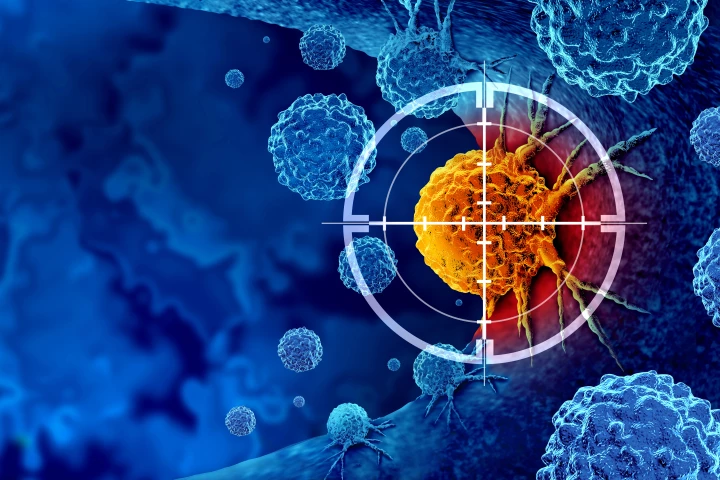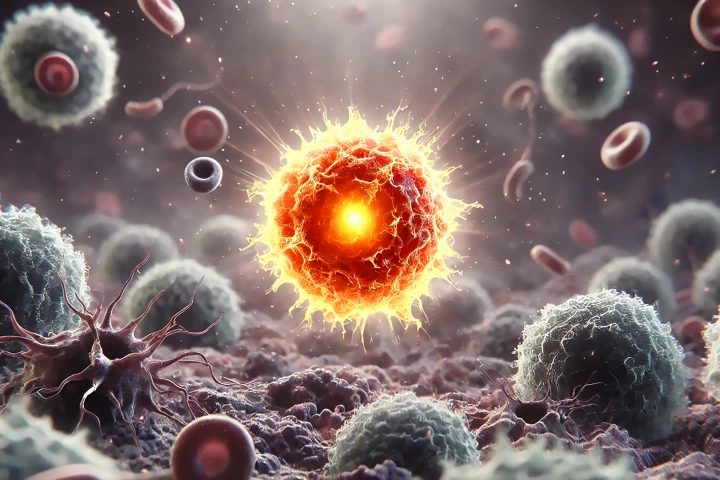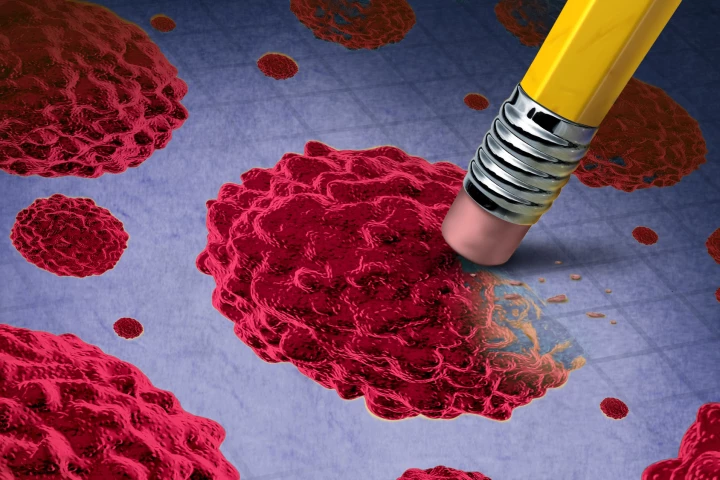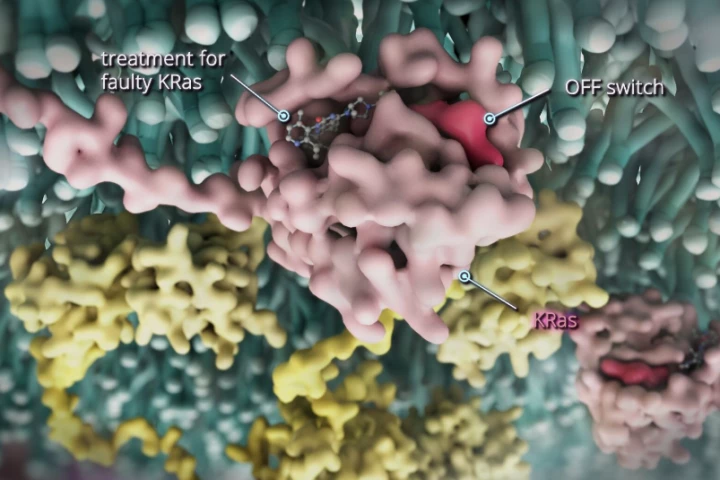Peter MacCallum Cancer Centre
-
A promising new treatment to combat "undruggable" cancers has been green-lit for a human trial. It's hoped the novel drug will be able to stunt the growth and enable the effective treatment of cancers driven by the MYC oncogene and its MYC protein.
-
Scientists have uncovered a mechanism for reinvigorating the immune system to stop it from flagging when it’s fighting long-term conditions like chronic infections and cancer. It could make treatments more effective and improve clinical outcomes.
-
A phase 3 clinical trial has shown that adding an immunotherapy drug to chemotherapy almost doubled the cure rate for patients with the most common kind of breast cancer. The findings suggest that a new treatment paradigm should be adopted.
-
Lung cancer is the number one cause of cancer-related deaths worldwide. A trial of a new anti-cancer drug has found that five years after treatment, 60% of patients with a very common form of the disease are still alive, and the cancer has not progressed.
-
February 11 marks International Day of Women and Girls in Science. The day celebrates both the work of women across vast scientific disciplines, but also recognizes ongoing gender-based challenges. Here, we pay tribute to 11 stars of STEM today.
-
In what has already been tagged as a “game-changer” for cancer treatment, the potent once-a-day tablet known as divarasib has continued to impress at Phase 1b trial stage, outperforming not just current therapies but its previous trial results.
-
Cancer cells are notorious for evading detection by the immune system. But a promising new type of genetically engineered T-cell that can effectively destroy solid cancer tumors may be just what the doctor ordered.
-
The immune system is one of the most powerful tools we have in the fight against cancer, but sometimes it needs a little extra help. In a new study, researchers have developed a new way to summon a wider variety of immune cells to target tumors.
-
A study carried out at Australia’s Peter Mac Cancer Centre has provided a possible new pathway forward in treating a host of diseases, revealing that drugs under development to treat cancer could be altered to temper inflammation in a powerful way.
-
Two new diagnostic techniques hope to help catch the most aggressive forms of prostate cancer. One study measures gene expression in tumors to predict disease severity, while another details a new imaging technique to detect metastatic disease.
-
Exactly how do immune cells avoid wiping themselves out while attacking invaders? Researchers at Peter Mac and UCL have now found that they create a tough shield around themselves, and this discovery could lead to new cancer therapies.
-
New research into CAR-T cell therapy has revealed crucial mechanisms that could help the immunotherapy technique, which is currently only effective against blood cancers, be adapted for the treatment of brain tumors and other forms of solid cancers.
Load More











